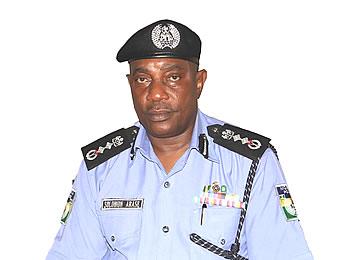The last few weeks have been particularly grim and bloody across the nation with some vicious criminal gangs intensifying their campaigns of violence: killing, maiming, kidnapping and generally causing human suffering on an enormous scale. The height of it was the cold-blooded murder of seven operatives of the Department of State Services (DSS) in the Ikorodu area of Lagos by some suspected pipeline vandals. The incident was the second of such attacks on security operatives within two weeks. On August 30, three policemen from the Special Anti-Robbery Squad (SARS) were similarly shot dead by this dare-devil gang of bandits.
Whichever way one views the foregoing carnage, they represent an extreme symptom of far wider problem in the society as violent crime rises dramatically throughout the country. And the scale and brutality of some of the cases are so benumbing that almost everywhere in the country today, there is a pervasive sense of fear and insecurity: armed robberies, kidnappings, pipeline vandalism and other allied crimes are painting a picture of a country practically at war with itself.
A fortnight ago, Mrs Toyin Nwosu, wife of the deputy Managing Director of the Sun newspaper, was kidnapped by a criminal gang that had robbed the family and their neighbours of valuables in Lagos. Two weeks earlier, another vicious gang invaded the home of Vanguard columnist Donu Kogbara in Port Harcourt and seized her for almost two weeks. But both Nwosu and Kogbara were lucky to have eventually been released, apparently after their families must have paid some hefty ransom. Mrs. Jacinta Adaku Chukwurah, an engineer, was not so lucky as she was murdered by her kidnappers in Aba, Abia State.
Since then, there had been other cases. Former Secretary to the Government of the Federation, Chief Olu Falae was abducted at his farm in Ondo State just as Chief Asuquo Ekpenyong Ekpe, (elder brother of the former Director General of the DSS, Mr. Ekpenyong Ita) was kidnapped from his Creek Town residence in Cross River State recently.
Over the past few months, many have lost count of victims of the gangs who roam the cities and countryside, extorting money from people, both rich and poor. And these are even the ones that make the headlines. The fact of the matter is that in our country, kidnapping has become a thriving criminal enterprise. Yet a time was when kidnapping was restricted to some antediluvian ritualists.
Today, anybody with a value that could be placed on his or her head is a potential target. Yet there are no indications that the relevant authorities are tackling this challenge with the seriousness it deserves. The paucity of information on the number of arrests, prosecution and convictions of the perpetrators of this criminal act clearly demonstrates the low level of importance attached to combating this criminal enterprise. And clearly the police, the judiciary, legislature could do more to checkmate this growing threat.
However, our various communities also have a critical role to play in tackling this scourge. Kidnappers are human beings and they live within communities. Members of our various communities therefore have roles to play in putting a stop to this rapidly growing criminal activity by providing useful information to security agencies. The police must also brace up to perform their duty of securing the nation with the urgency it deserves. A security agency that is alive to its onerous responsibility would have been able to nab the criminals who kidnapped Mrs Nwosu as their get-away speedboat reportedly broke down for about 20 minutes.
Finally, the high rate of crime also emphasises the state of our economy. An idle hand, the common saying goes, is a devil’s workshop. With many of our young men and women not gainfully employed, it is no surprise that some of them are turning to crime.














































